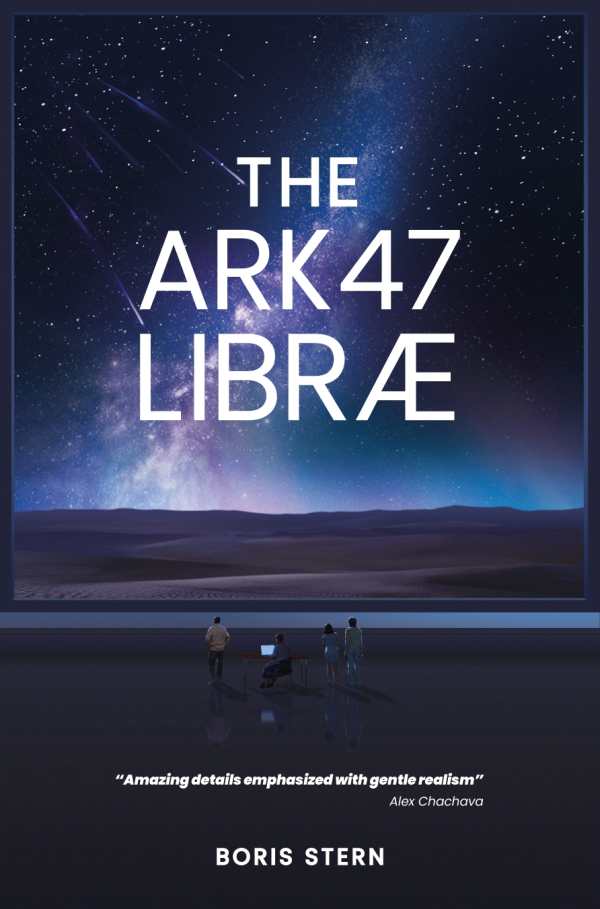It looks like you've stumbled upon a page meant to be read by our code instead of viewed directly. You're probably looking for this page.

The Ark 47 Librae
Human life flourishes under different stars thanks to thousands of years of meticulous planning in the speculative science fiction novel The Ark 47 Librae.
In Boris Stern’s sweeping science fiction novel The Ark 47 Librae, human beings set upon the task of colonizing another solar system.
In the mid-twenty-second century, a team of scientists from the Mongolian Science Park concoct a plan for making human beings an interstellar species. The trip on a ship dubbed the Ark to an extrasolar planet, sixty light-years from Earth, is scheduled to take ten thousand years. Speculative technologies are developed within the bounds of the laws of physics. But among the rebels, misfits, and revolutionaries involved in the plan, everyone has their own motivations for working on the Ark.
The book’s futuristic world is built on extrapolations of contemporary culture. The story is set on both Earth and Mars, and both settings are fleshed out in the course of people’s conversations. Herein, civilization has reached a point of “homeostasis,” and the book’s large cast of characters extends across many generations. Each is rendered via idiosyncratic personalities: Alex, a brilliant scientist, challenges the homeostasis of civilization and dreams up the Ark; Goran, an eccentric Martian settler, proves instrumental in the success of the project. Secondary characters round out the world, though their voices often fade into the background; some, though compelling in their own rights, are only given a few pages to breathe.
Much of the book takes place thousands of years after the original creators of the Ark have succumbed to old age. Still, they remain present in parts of the Ark as it travels through space and arrives on a barren planet. In the span of hundreds of thousands of years, the novel speculates about the rise and fall of civilizations, both on Earth and on Selina, the name chosen for 47 Librae. Robotic systems aboard the Ark go about terraforming; hundreds of generations are compressed as the world is prepared for its future human inhabitants by industrious robotic workers. A spectrum of precise scientific language from a variety of fields lends credibility to this hard science fiction tale.
The breadth and expansiveness of the book’s time scale is grand, but the story stays grounded thanks to its descriptions of sweeping vistas, pristine primordial beaches that are transformed by the rich colors of algae and seaweed, and populations of complex lifeforms, all capturing the sounds and scents of Selina—a once-barren world brought to striking life. Despite dealing with themes of nihilism, the book ends on an unexpected and refreshing note.
The Ark 47 Librae is a compelling science fiction novel in which human beings transcend barriers of time and space.
Reviewed by
Caitlin Cacciatore
Disclosure: This article is not an endorsement, but a review. The publisher of this book provided free copies of the book and paid a small fee to have their book reviewed by a professional reviewer. Foreword Reviews and Clarion Reviews make no guarantee that the publisher will receive a positive review. Foreword Magazine, Inc. is disclosing this in accordance with the Federal Trade Commission’s 16 CFR, Part 255.